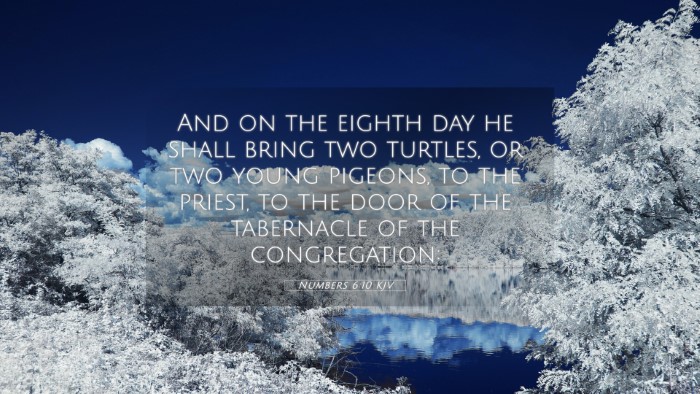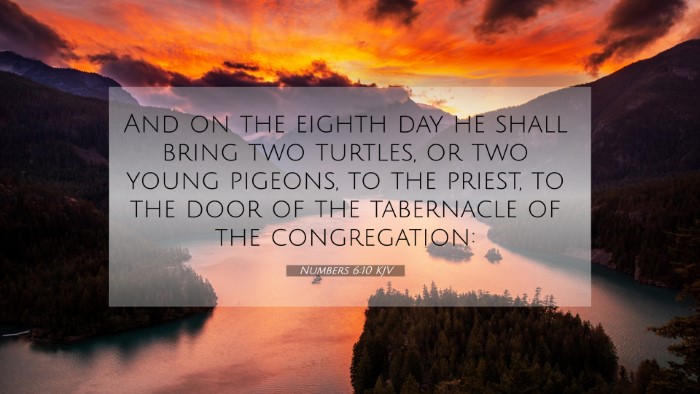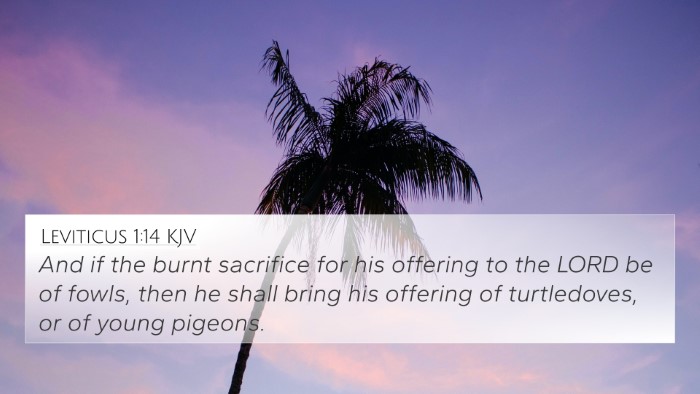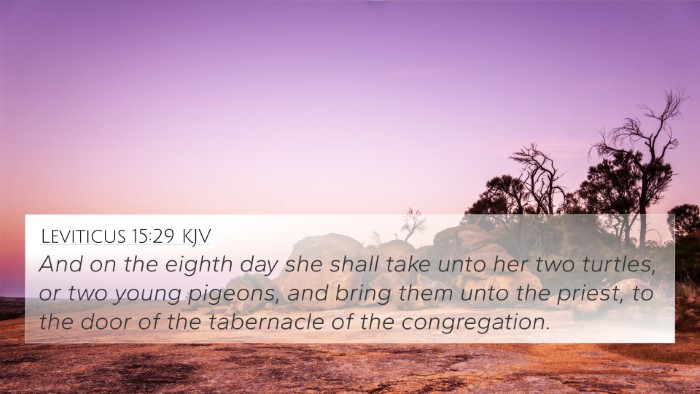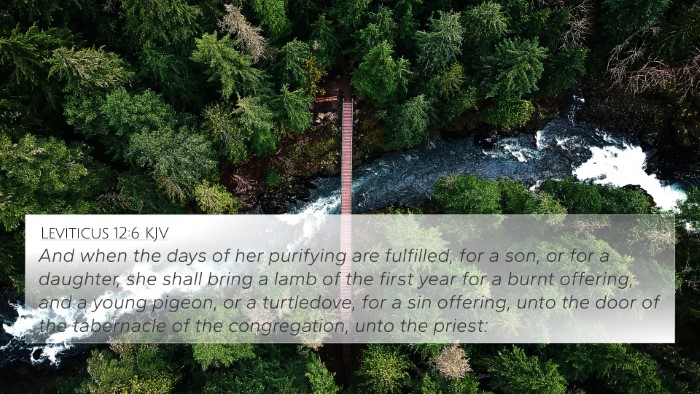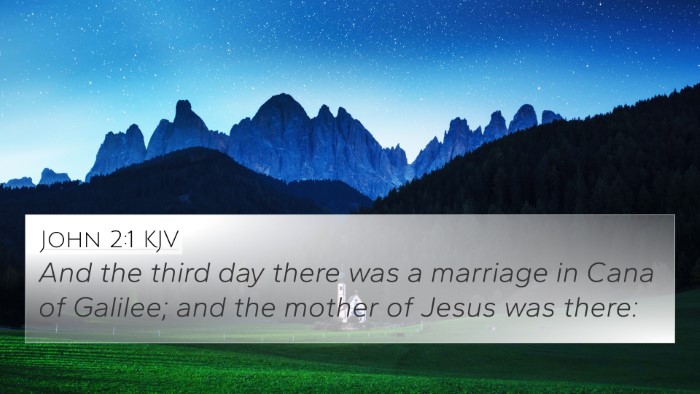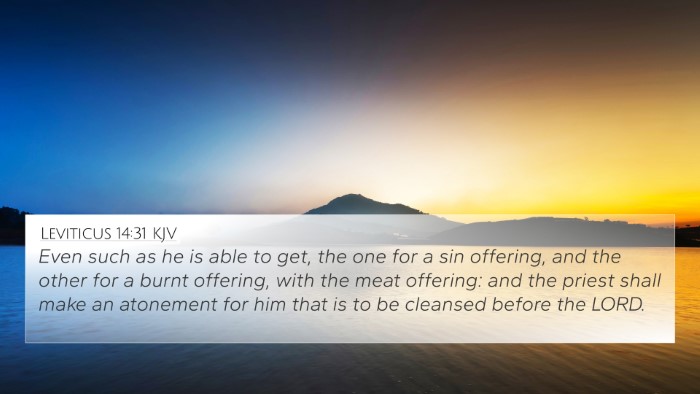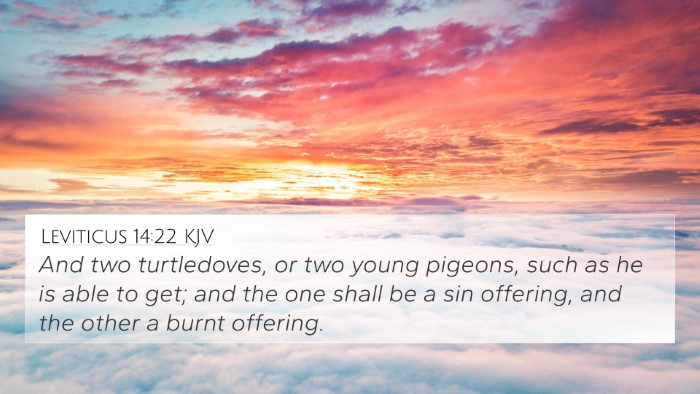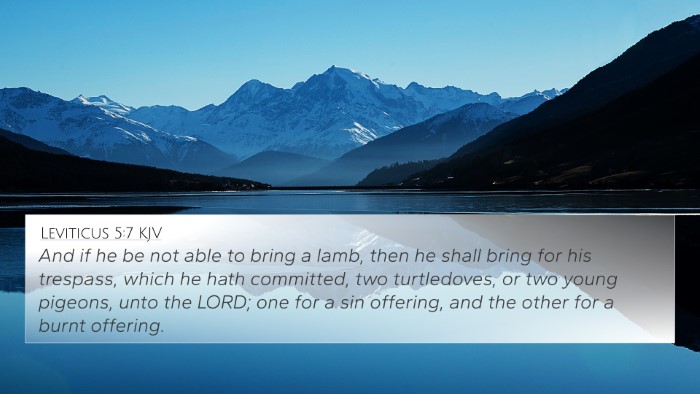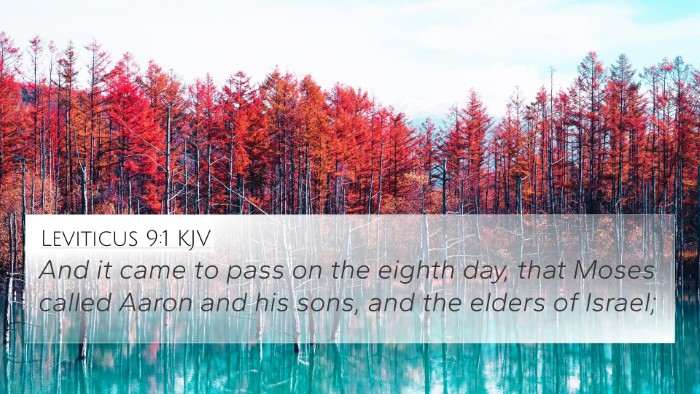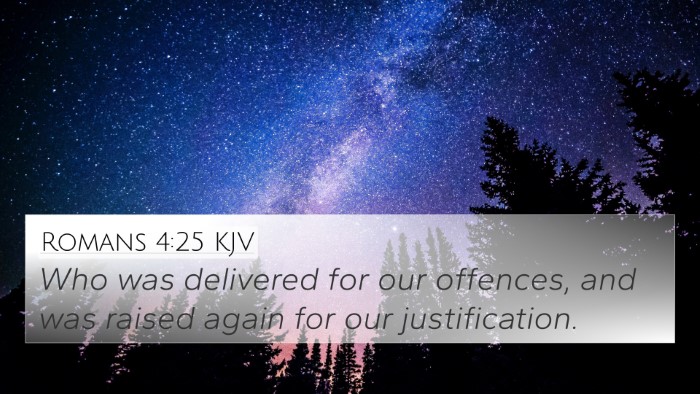Understanding Numbers 6:10
The Book of Numbers in the Bible contains various laws and regulations given to the Israelites, and
Numbers 6:10 stands out as a significant verse. This verse states:
"And on the eighth day he shall bring two turtledoves, or two young pigeons, to the priest, to the door of the tabernacle of the congregation."
Insights from Public Domain Commentaries
This verse refers to the rituals concerning the Nazarite vow, a commitment made by individuals to separate themselves to God for a period of time.
The offerings described in the verse represent a culmination of this separation and dedication.
-
Matthew Henry:
Henry elaborates that the offerings are essential as a form of restitution for the vows made, indicating a public acknowledgment and demonstration of faith. The turtledoves or pigeons were common sacrifices, symbolizing humility before God.
-
Albert Barnes:
Barnes points out the significance of the timing (the eighth day), seeing it as a representation of new beginnings and complete fulfillment of the vow. This day was seen as pivotal for the Israelites to reintegrate into communal worship.
-
Adam Clarke:
Clarke interprets the choice of offerings as underscoring the accessible nature of sacrifice, where even those with limited means could still fulfill their commitments to God. Clarke's commentary emphasizes God’s inclusive approach to worship.
Thematic Connections
Numbers 6:10 can be cross-referenced with various other scriptures for deeper understanding:
- Leviticus 14:22: Discusses offerings for the purification of those in need, closely related to sacrificial practices.
- 1 Samuel 1:24: Hannah brings a similar offering, reflecting personal dedication and response to divine promises.
- Mark 1:44: Jesus instructs on the importance of offerings per the Law of Moses, connecting New Testament fulfillment with Old Testament practices.
- Luke 2:24: The required offerings for purification are reflected here in the actions of Mary and Joseph in presenting Jesus at the Temple.
- Matthew 5:23-24: Jesus teaches about reconciliation and the importance of addressing issues before making offerings to God.
- Hebrews 9:22: Discusses the importance of blood in sacred offerings, linking the concept of sacrifice across the testaments.
- Romans 12:1: Encourages believers to present themselves as living sacrifices, echoing the themes of dedication found in Numbers.
Bible Verse Cross-References and Connections
This verse can be viewed as a vital link in the broader themes of sacrifice and dedication throughout the Bible.
The concept of a vow ties into the significance of offerings as a means to restore or maintain one's relationship with God.
Tools for Bible Cross-Referencing
To explore connections between Bible verses more thoroughly, consider using various tools:
- Bible Concordance: A reference tool that lists words and their occurrences, helping you trace themes across the scriptures.
- Cross-reference Bible Study: Utilizing study methods to find multi-layered interpretations through linked verses.
- Bible Reference Resources: Compilations of verses that demonstrate comprehensive thematic connections.
- Bible Chain References: A method for connecting verses in systematic patterns, enhancing understanding of themes.
Applying Cross-References for Deeper Insight
To substantiate interpretations of Numbers 6:10, one might consider asking:
- What verses are related to Numbers 6:10?
- How do Joshua 6:1 and Numbers 6:10 connect through themes of dedication?
- What similarities exist between Numbers 6:10 and Leviticus 14:22 in their sacrificial contexts?
Conclusion
Numbers 6:10 invites believers into rich theological dialogue about commitment and offerings to God, emphasizing the importance of fulfilling vows while providing a bridge across various biblical texts. By exploring the connections found within both testaments, one gains a more comprehensive understanding of the narrative of faith, sacrifice, and divine relationship in scripture.

